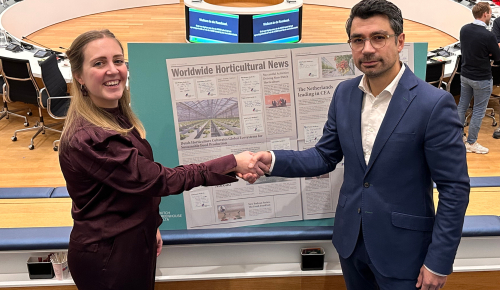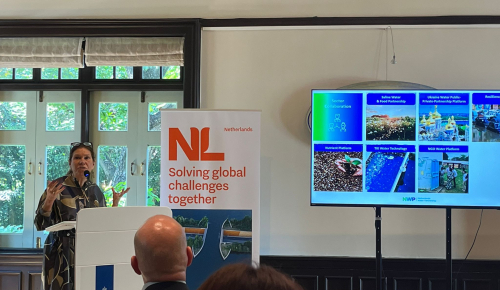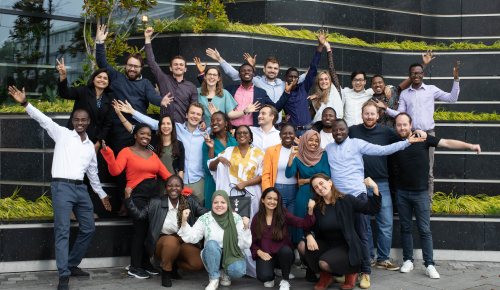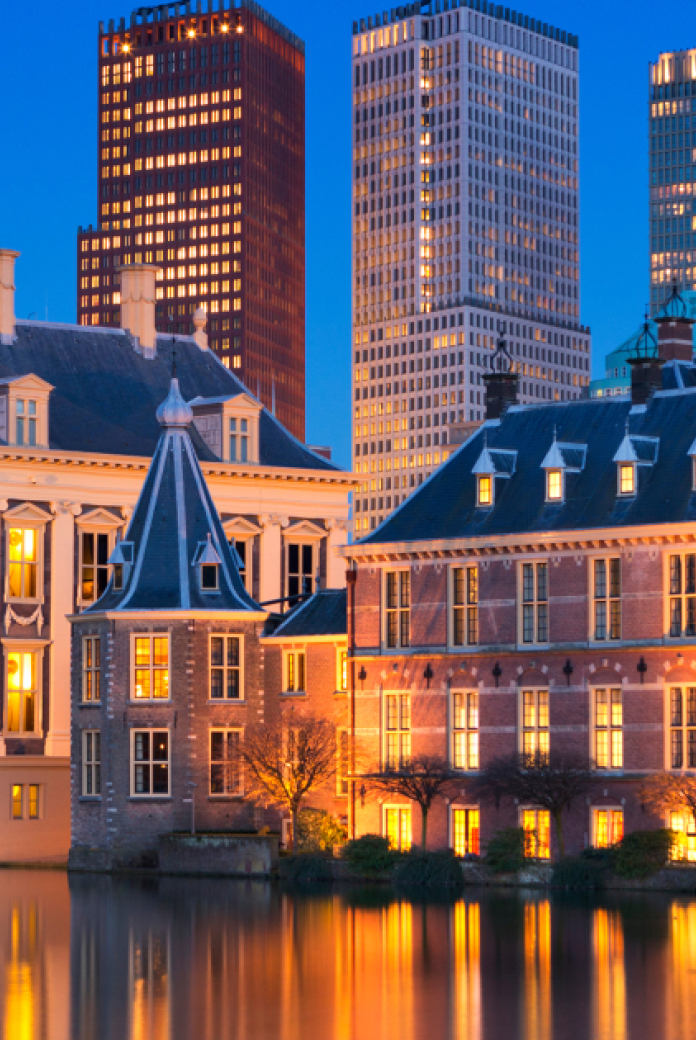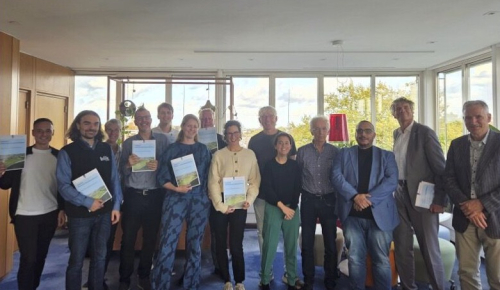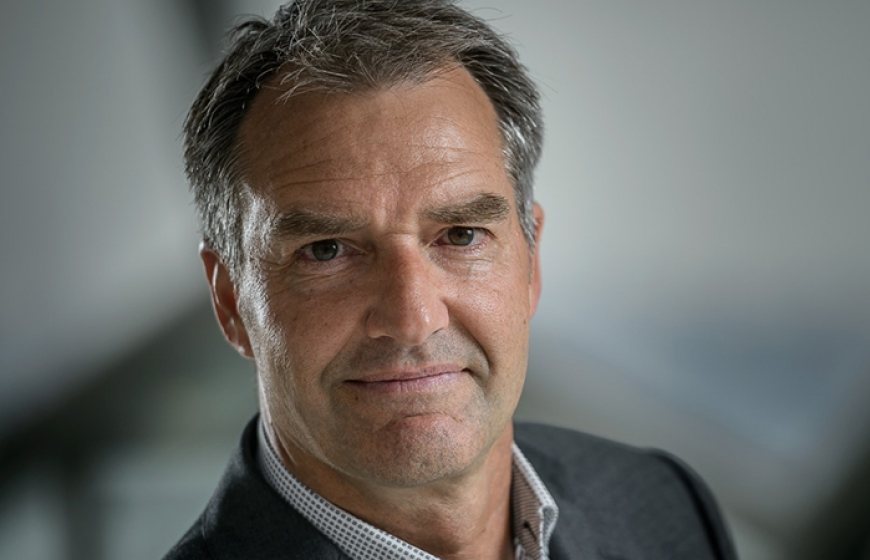
In 2014, the Rockefeller Foundation took the initiative to set up 100 Resilient Cities - with Rotterdam as one of the first members. Six years later, it is time for the next step: a network managed by the cities themselves that is more focused on action and implementation than before. This next phase was announced at the 10th World Urban Forum, from 8-13 February 2020 in Abu Dhabi. The new brand name of the Global Resilient Cities Network is expected to be officially announced in May. Arnoud Molenaar, Chief Resilience Officer in Rotterdam and member of the global steering committee, sees plenty of new opportunities for the cities and for the Dutch water sector.
"Thanks to the Rockefeller Foundation we have made a flying start: 100 cities have received support in drawing up a resilience strategy, and chief resilience officers have been appointed everywhere. In the first phase, it was mainly about the ‘why’ of resilient cities, and about the awareness of urgency. We have been successful as the theme is now really high on the agenda everywhere.
Run by the cities themselves
So now it's time for a new phase. The network is now really becoming a network run by the cities themselves. The Rockefeller Foundation remains on board as a sponsor and has provided extra funding to ensure that the transition to the new set-up goes smoothly in the coming period. At the same time, we are looking for a broader and more structural financial basis. From there, we want to continue to grow in the future and we especially want to implement our resilience strategies together. We are also open to new cities, a dozen of them to start with.
Not all the cities started at the same time and not all of them have reached the same stage. Furthermore, every city takes a different approach. Rotterdam was one of the first cities to join the network. We defined our strategy four years ago and have made considerable progress in its implementation. Our approach is to work with the city’s residents to make resilience more integrated and inclusive. For us, resilience goes beyond just water and adaptation. We are also talking about resilient energy systems, infrastructure and cyber resilience, and about the social component. Our message is to make resilience integrated and inclusive, and it is great to see that the penny drops in other cities when they see how an integrated approach really boosts resilience.
Inspiring connections
Thanks to our network, more and more inspiring connections are emerging between cities. For instance, we work closely with Paris. We will go there again on 6 and 7 March. Paris has had to deal with severe heat stress in recent years and now they use schools and schoolyards as shelters in extreme weather conditions. Initially they were inspired by our water squares, by our different way of thinking that included social cohesion. Now, in turn, we can learn from them. That is the beauty of cooperating in a city network.
A second example is our intensive collaboration with Surat in India. Surat has a population of about six million and this number is expected to double over the next 10 years. Restoring the water balance is a major challenge and there is a huge need for water storage. Inspired by water squares in Rotterdam, the city is now planning to construct seven water squares. The secret is not to copy, but to take an idea and translate it to one’s own tailor-made solutions. In this case, Surat is going to use the water squares in the rainy season for both water storage and religious rituals - they then no longer have to use the river for that. So the benefits are two-fold.
An important task for our city network is to cooperate in finding additional funding. For instance, the participating cities in Europe are all working on the smart city concept that has a direct connection to resilience. We may very well set up a coherent European programme to learn and to benefit from one another.
Innovative profile
Our participation in the network naturally enhances Rotterdam’s profile as an innovative city in the field of water and adaptation. In September 2019, the European Commission declared Rotterdam as one of the six iCapital winners. That reputation certainly helps us attract important events to our city such as the Urban Future Global Conference 2021. And last year we welcomed all 100 Resilient Cities during the Resilient Cities Summit – this was a first. Rotterdam is also a member of C40, a network of the world's megacities committed to addressing climate change. C40 supports cities to collaborate effectively, share knowledge and drive meaningful, measurable and sustainable action on climate change.
This year, 2020, will again be a special year for resilient cities, with Adaptation Week from 19 to 23 October in the Netherlands. The Global Commission on Adaptation, of which the Netherlands is co-initiator, will host the Climate Adaptation Summit in Amsterdam. In the same week, we will hold a Mayors Forum and a Climate Adaptation Conference in Rotterdam. Our partners in the water sector are invited to join these events.
Reputation of the Dutch water sector
A strong network of cities, with a recognisable role for Rotterdam as well as The Hague, will undoubtedly also benefit the reputation of the Dutch water sector. We can show the world what Dutch experts have achieved and what they have to offer. The business community can also benefit from this.’
